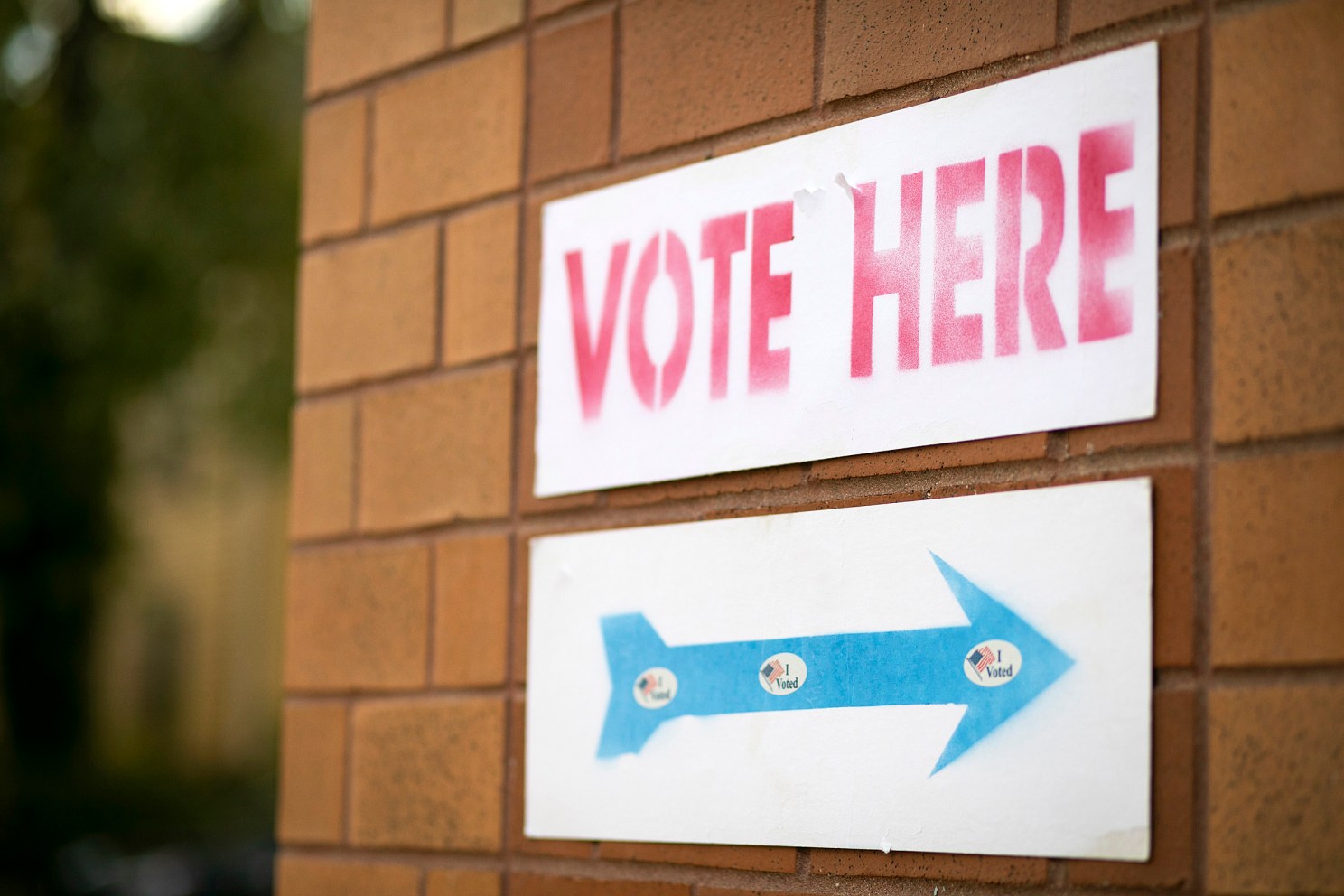On March 1, the Georgia House of Representatives passed H.B.531, a sweeping elections bill that critics and voting rights advocates were quick to note increases restrictions on absentee voting and curtails weekend early voting hours.
Just two days later, the U.S. House of Representatives passed H.R.1, legislation containing a broad range of democratic reforms, from automatic voter registration requirements for state agencies to campaign finance reform, in efforts to lower voting barriers across the country.
The juxtaposition of these two bills highlights a fast-approaching conflict over voting rights taking shape at both federal and state levels this year. The fight, according to a number of Harvard experts, will likely play out through both legislative chambers and courtrooms, with its results also likely to reverberate for years.
“If H.R.1 and its companion Senate legislation were to pass, the new law would have a dramatic impact on the state of voting rights and political representation in the states,” said Miles Rapoport, senior practice fellow in American democracy at the Ash Center for Democratic Governance and Innovation at Harvard Kennedy School (HKS).
Among its provisions, the legislation dubbed “For the People Act,’” would set a national standard for how states handle voter registration — which currently varies widely from state to state — and require online registration, automatic voter registration, and the restoration of felon voting rights. The bill would also require at least 15 days of early voting, including Sundays and expand voting-by-mail. This set up a clash with legislators in Georgia, who have attempted to roll back many reforms made to ease voting procedures during the pandemic. “All of these provisions would go straight at the attempts currently being made in some state legislatures, including Georgia, to sharply limit voting rights,” said Rapoport.
The state of the states
“Bills on absentee, or mail, voting are definitely up in 2021, most likely as a response to the huge increase in absentee voting last year,” said Wendy Underhill, director of elections and redistricting at National Conference of State Legislatures, who spoke at a Feb. 18 Ash Center event on election reform in the states. “Some bills aim at codifying what were temporary changes from last year, others are putting limits on absentee voting that weren’t there before.”
In Georgia, the bill now working its way through the state Senate includes a requirement for photo ID to vote absentee, limits ballot dropbox placement, and curtails Sunday early voting days to just one Sunday per month for counties across the state. Proponents insist the bill is necessary to restore confidence in Georgia’s electoral processes and increase uniformity in election procedures. Voting rights advocates are alarmed over how the new measures would restrict ballot access and disproportionately harm low-income and minority communities.
“I can say reliably that the final legislation that becomes law will create barriers to voting that disparately impact people of color, low-income citizens, the elderly and the disabled,” said Nan Grogan Orrock, Georgia state senator, representing Senate district 36, also a panelist at the Feb. 18 discussion.
The proposed Sunday early voting restrictions came under particular attack by voting rights advocates who claimed they were thinly veiled attempts to stop get-out-the-vote drives organized by African American churches. Georgia saw record-breaking voter turnout during the 2020 presidential election and January 2021 Senate runoff, with Black voters playing a pivotal role in deciding both elections.
“Anytime there’s been Black progress in this country, there’s been a white reactionary backlash of folks who actually have never believed in the basic fundamental principle of democracy,” said LaTosha Brown, Hauser Leader at the Center for Public Leadership and an American Democracy Fellow at Harvard’s Charles Warren Center for Studies in American History.
Discussing the Georgia elections bill in the context of the recent 56th anniversary of Bloody Sunday — a march in 1965 where unarmed civil rights protestors were brutally beaten by law enforcement — Brown reflected on the never-ending fight against voter suppression. “We are literally facing some of that same egregious, roll back in time legislation to marginalize and disenfranchise voters in this nation. And so here we are, 56 years later, and we’re still fighting that same fight.”
“Georgia’s voting rights advocates are highly mobilized, highly motivated, fully understanding what’s at stake,” said Orrock.
Future for reform
The Voting Rights Act hasn’t been reauthorized by Congress since 2006 and attempts to modernize its enforcement provisions struck down by the Supreme Court in 2013 have largely stalled along party lines. Voting rights advocates, however, aren’t dissuaded by the uphill road to passing newer, and far-reaching democracy reform legislation. “It’s time for us to make a quantum leap in this issue around democracy. It shouldn’t even be an argument,” Brown said.
While organizers on the ground in Georgia are working to build opposition against the pending rollback of voting reforms, Brown is hopeful about the impact of H.R.1. “I think the impact is going to be substantial and I am hoping that we’re putting pressure that the Senate will follow through,” she said.
In D.C., H.R.1s path to passage remains unclear. “As the bill heads to Senate, we are already seeing diverse strategies emerging on how reforms can be passed in the chamber,” said Teresa Acuña M.C./M.P.A. ’18, associate director for democratic governance programs at Ash and a former Capitol Hill staffer. “Some remain optimistic they can appeal to the Democrats needed to suspend the filibuster. Others are arguing for more creative ways to move key pieces of the legislation through processes that would require simple majority support. It is hard to say what Senate leadership will agree to do.”
While H.R. 1’s immediate future is still unclear, experts agree that now is a critical moment for American democracy. “Time is of the essence and the stakes could not be higher,” said Acuña.
“I think that we are in a moment, a reflective moment in this country that we are making decisions right now that are going to decide whether we kind of go forward or whether we go backward,” added Brown.






